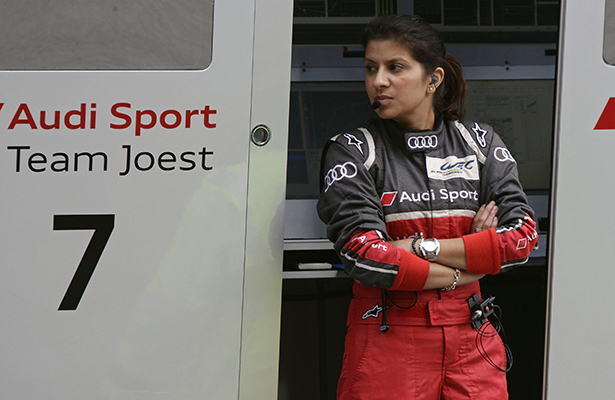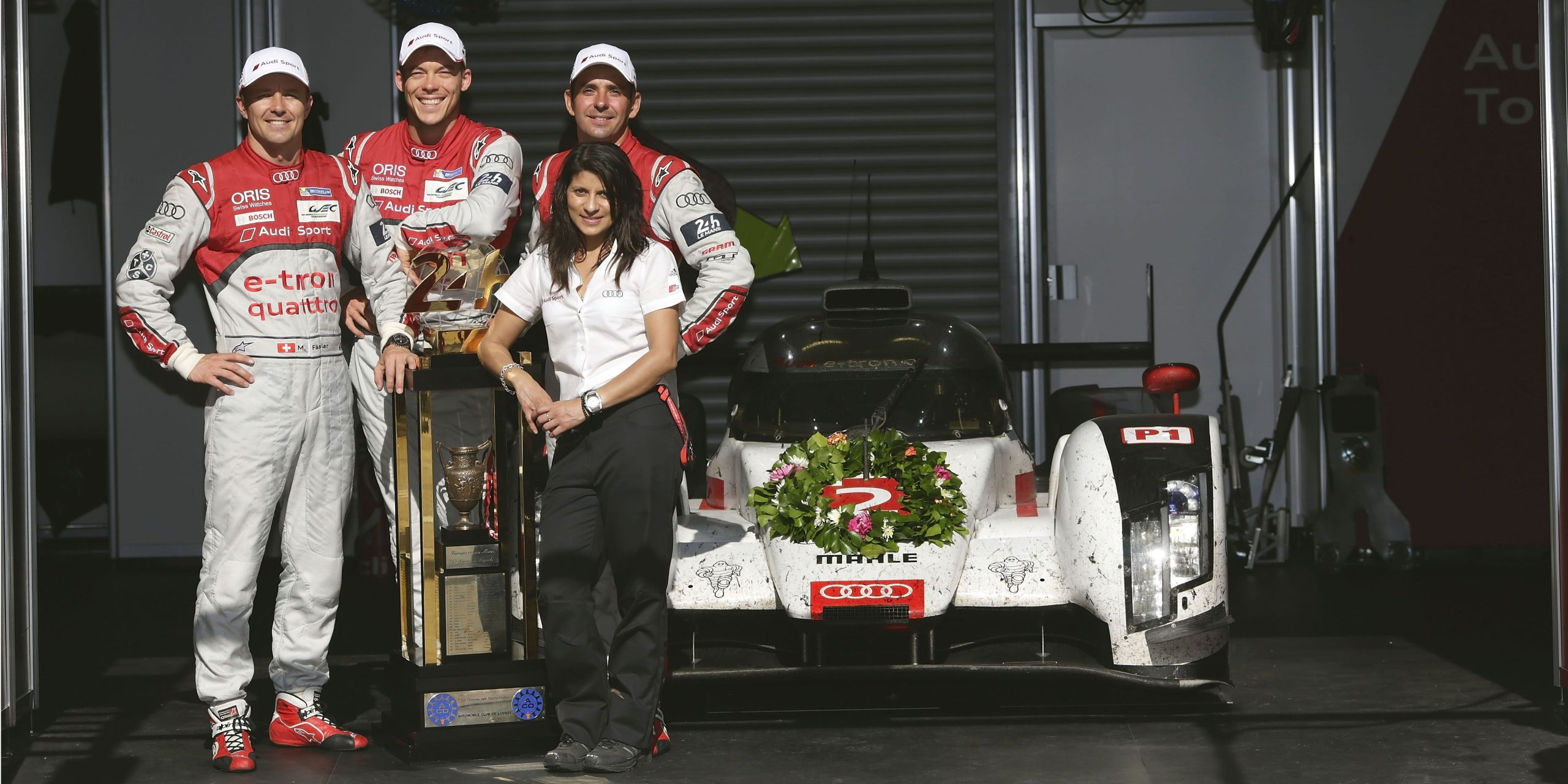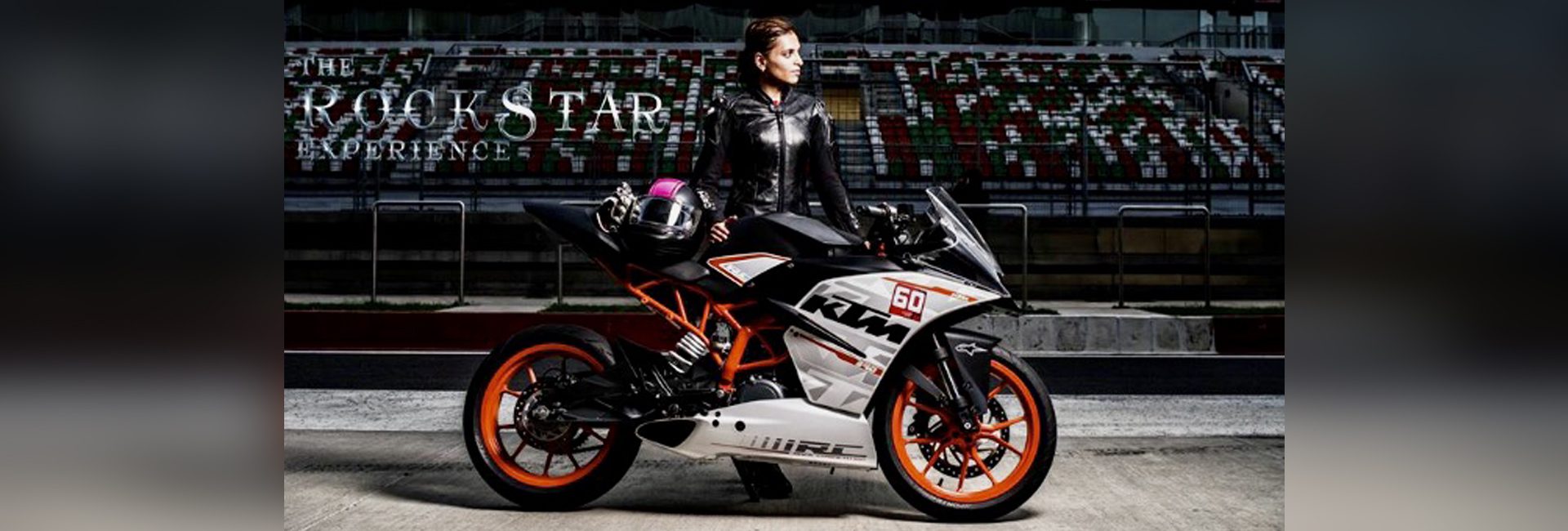(November 21, 2023) India has been witnessing a huge rise in the number of professional racers in the last few years. However, very few people know that about ten years back, an Indian-origin British race engineer, Leena Gade won the prestigious Le Mans 24 Hours, when she ran an Audi R18 driven by Andre Lotteree, Benoit Treluyer, and Marcel Fassler to victory. While many thought that the team had just got lucky in the tournament, Leena did it again in 2012 and again for a third time with the same trio in 2014. Usually dubbed as ‘the First Lady of endurance racing’, Leena was named the FIA World Endurance Championship (WEC) ‘Man of the Year’ in 2012.

Proving that that gender is no barrier to success, the race engineer stands as a formidable force, undeniably leading the path for aspiring female racers. “I just wanted to be involved in the sport. I thought it was fascinating,” the Global Indian had said in an interview, adding, “It was tough in the beginning, however with time I learnt a lot about how you speak on the radio, how you don’t lose your head. You just kind of keep calm. The driver might be freaking out in the car and you just have to say ‘Yeah all good’. Because you can’t let the atmosphere just go crazy, otherwise our team would fall apart.”
In the fast lane
Leena was born in the UK to parents of Indian descent. Surprisingly, as a kid, she never really thought about being a race engineer. It was during the late 1980s that she and her younger sister Teena stumbled upon Formula 1, which sparked their fascination with the sport and planted the seeds of their dreams to become motorsport engineers. “I didn’t really have any aspirations as a kid to be a race engineer. Even when we were watching Formula 1, if that title was ever used, it wasn’t something that was like ‘That’s what I wanna be!’. The commentators had experience in years and years of racing and they would motivate you to get interested in the sport,” shared the race engineer, adding, “At the time we were watching, the internet was absolutely not a thing. We had to go off and buy a magazine to read about what was going on and find out about the different types of series. My interest in it was just to be an engineer in motorsport.”

After finishing her school, Leena joined the University of Manchester to study engineering. She went on to earn her Master of Science degree in aerospace engineering in 1998. Interestingly, she joined the university as one of just five female students in a class of 100, and by the time she graduated, she was the sole remaining female student.
“I and my sister used to fix our toys whenever we broke them, pull apart most electronic items in the house to see how they worked, played with chemistry kits and just generally took an interest in how stuff functioned. So engineering was quite a natural choice for me. In fact, there was never a question about another career. So, when I got into the college I never thought of quitting just because there weren’t many female students. It also doesn’t make a difference if you are male or female, it’s about your attitude and you either want to do it or not,” the race engineer said.
Chasing the finish line
Soon after finishing her master’s, Leena joined Jaguar Cars as a vehicle refinement engineer and worked there for about six and a half years. But, still fascinated by race cars, she would work part-time as an engineer on racing teams in the Formula BMW, A1 Grand Prix, and GT racing classes. To reach her current position, the race engineer has demonstrated remarkable patience and discipline. She’s handled everything from cleaning cars and tires to brewing tea, all while keeping her eye firmly on her ultimate goal.
“I never saw any task as a chore, it was something I had to do and every time I did it I made sure I learned something. If you think you know it all, I can guarantee you that it will come back to bite you in the face,” she said during an interview, adding, “You have to get as much experience as you can, because motorsport is a huge and very competitive thing, with room for people from all walks of life and with different interests.”
View this post on Instagram
Her initial encounter with the 24 Hours of Le Mans occurred in 2006, during her tenure with the Chamberlain Synergy Le Mans Prototype team. Just a year later, in 2007, she made her move to the Audi Sport Team Joest. “When I first started, I did a bit of mechanicing. And then that led to working on data engineering. Analysing the data, being able to describe to a driver where they were fast and slow versus somebody else, or how to drive a car so that they can be quicker, was where I started. Slowly that led to being an assistant engineer. You are sort of like the backup to the race engineer. I worked closely with a very good race engineer and it was only after two and half years of doing that, that I was asked if I wanted to actually run a car at a test,” she remarked.
Ahead of the pack
The historic race that etched her name forever in history was full of twists and drama. In fact, till the last stage, it was quite obvious that the Audi team wouldn’t win. Talking about that last lap of André Lotterer, the race director recalled, “On the live feed you could see the Peugeot garage giggling because I think they thought they’d done it, but all of a sudden we changed tyres and left the pits with a gap of five, six or seven seconds on fresh rubber. They glanced back on the live feed to the Peugeot garage and you could see their faces – and then the gap started to increase. Then the Peugeot guys started crying.” And that’s how Leena became the first ever woman race engineer to win the legendary 24 Hours of Le Mans race.
Currently, a Senior Principal of McLaren Racing and Race Engineer for the NEOM McLaren Extreme E team, Leena is working towards promoting their profession to future generations and raising awareness about the importance of female representation in the sport. “If you want to do it, you have to make it happen on your own. I never treated any task as beneath me or as a chore, it was something I had to do and each time I made sure I came away learning something. If you believe you know it all, I can guarantee you will fall flat on your face. Experience as much as you can, because the motorsport business is a wide-ranging and competitive one with places for people of all backgrounds and interests,” advised the race engineer.
Also Read: Meet Dr Astha Purohit, the doctor turned tech expert who heads technical operations at Walmart



